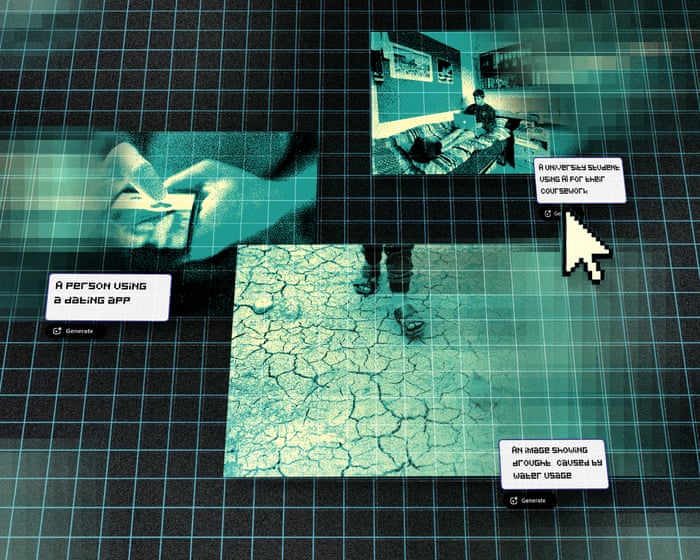Hundreds of people from 44 countries are sailing to Gaza this week as part of the Global Sumud Flotilla. I am one of them. Our goal is to peacefully break Israel’s illegal blockade by delivering essential supplies. I joined this mission because, as an Irish person, I’ve watched my government respond to what our taoiseach has called a genocide with little more than symbolic gestures—or as I’d put it, the occasional round of Hail Marys.
In truth, that description is too kind. The Irish government isn’t just passive in the face of genocide—it actively enables the perpetrators. U.S. military planes, which may be carrying weapons to Israel, regularly pass through Shannon Airport without inspection. A bill from 2018 meant to ban trade with illegal Israeli settlements has been stuck in legislative limbo for seven years, with endless delays over minor details. Since Brexit, Ireland’s central bank has become the only EU regulator that approves the sale of Israeli war bonds across the bloc—bonds Israel openly uses to fund its campaign in Gaza. In June, the government voted down a motion to stop the central bank from facilitating these sales. There’s a grim irony in choosing to remain Israel’s financial “home” for bond approval while claiming to oppose its forced dispossessions.
Ireland’s solidarity with Palestine is often romanticized, both abroad and at home. We take a kind of exceptionalist pride in recognizing Palestinian statehood in May 2024—even though we were the 142nd country to do so, nearly four decades after the first wave of recognitions in 1988–89.
But Palestinian activists are well aware of our government’s hypocrisy. At any major protest in Ireland, you’ll hear speakers who recently fled Gaza condemning this complicity. Nor does the state’s rhetorical support fool people in Northern Ireland; pro-Palestine campaigners there are just as critical of Dublin as they are of the UK government. From the perspective of many in Belfast, it makes perfect sense that the Republic would collaborate with colonial occupation while paying lip service to ending it.
Within the EU, Ireland faces far less scrutiny for its role in Israel’s war crimes compared to countries like Germany. I was living in Berlin when Israel began its bombardment of Gaza in response to Hamas’s attacks on October 7—which themselves followed decades of illegal occupation and a blockade dating back to 2007.
I was detained twice by German police simply for attending pro-Palestine demonstrations, and I saw much worse repression against other protesters, especially Muslims. Since I returned to Ireland in January, policing of Palestine protests in Germany has grown even harsher. Last week, a 25-year-old Dubliner named Kitty O’Brien was violently assaulted by police at a Gaza demonstration in Berlin. The incident sparked spontaneous protests in Ireland and expressions of concern from the taoiseach and Ireland’s ambassador to Germany.
It often seems that everyone will claim they were against what happened in Palestine—once it’s safely in the past.
I find Ireland a less hostile environment for protest, but the need to protest at all stems from my government’s failure to act on a policy level. There’s an illusion of debate among European nations: Germany backs Israel, while countries like Ireland, Spain, and Norway back Palestine, and we’re supposed to believe they’ll work it out in some grand exchange of ideas. This fiction lets everyone off the hook. The countries that are relatively critical of Israel avoid scrutiny for still refusing to impose meaningful sanctions; they push for…This needs to happen at the EU level, after all. Germany benefits from discussions based on the idea that all EU countries maintain economic and diplomatic ties with Israel. Critics lose credibility when they condemn the genocide but fail to treat it as such in practice.
In Ireland, activism around Palestine is now focused on a September 2 deadline for the central bank to renew its approval of Israeli bonds. The bank renewed them last September, nearly a year into the genocide. The Ireland Palestine Solidarity Campaign (IPSC) holds weekly protests outside the central bank. Another group has committed to weekly civil disobedience, starting with blocking traffic in central Dublin. Trade unions are increasingly involved, including a representative of Marseille dock workers who have blocked military shipments to Israel. There is a growing sense that lobbying isn’t enough and that industrial action is needed—the 1984 Dunnes Stores strike against South African goods is often cited as an example. Mary Manning, one of those strikers, spoke at a recent IPSC rally. If the bank renews the bonds on September 2, it could be a catalyst for further action.
Norway’s sovereign wealth fund has just divested from five Israeli banks and from Caterpillar, which supplies bulldozers used to destroy Palestinian property in Gaza and the West Bank. The fund still holds stakes in 38 Israeli companies as of August 14 and has only promised to review potential human rights violations, not divest entirely. The Spanish government is working toward a full arms embargo against Israel, with Prime Minister Pedro Sánchez under pressure to recall Spain’s ambassador from Tel Aviv. These moves are progressive compared to other EU governments, but they lag years behind public opinion.
In Ireland, we’re used to our government acting only when public pressure becomes too great, then boasting about their progressive credentials. It was frustrating to see international media praise the government for the marriage equality and abortion referendums in 2015 and 2018. In both cases, activists had to fight for decades and campaign door-to-door, facing insults and hostility, while our leaders delayed action. They could have legislated for marriage equality without a referendum.
Everyone will claim they were against what’s happening in Palestine once it’s safely in the past. While it’s happening, EU governments remain complicit. Some leaders call it genocide, some don’t—but they all keep trading with the perpetrators.
My government can watch the mass murder in Gaza and carry on as usual. I can’t; that’s why I’m sailing with the Global Sumud Flotilla. This civilian-led international movement is based on the simple human need to keep trying. If we reach Gaza, we will break a siege that our so-called leaders haven’t dared to challenge. If we fail, at least we won’t have responded to genocide by regulating the perpetrator’s war bonds.
Naoise Dolan is an Irish writer.
Do you have an opinion on the issues raised in this article? If you would like to submit a response of up to 300 words by email to be considered for publication in our letters section, please click here.
Frequently Asked Questions
Of course Here is a list of FAQs based on the statement designed to be clear concise and in a natural tone
BeginnerLevel Questions
1 What is Naoise Dolan talking about
Naoise Dolan an Irish author is highlighting what they see as a contradiction Irelands government officially condemns Israels actions in Gaza as genocidal but the Irish state still invests money in Israeli war bonds which help fund the Israeli military
2 What are Israeli war bonds
War bonds are a type of debt security a government sells to raise money for military operations By buying them investors are essentially lending money to the government to fund its war efforts
3 What is the flotilla theyre joining
A flotilla is a group of ships sailing together for a purpose In this context it refers to humanitarian aid missions that attempt to break the naval blockade of Gaza to deliver aid and draw international attention to the situation
4 How does Ireland profit from these bonds
Like any investment the Irish National Treasury Management Agency which manages state funds buys bonds to earn a return on that investment The profit comes from the interest payments made by the Israeli government
5 So is Ireland directly funding the war
Not directly writing a check but by purchasing these bonds the Irish state is providing financial capital to the Israeli government That government then uses its general funds which are bolstered by such bonds for its military budget
Intermediate Advanced Questions
6 Isnt this a conflict for the Irish government
Yes thats the core of the criticism It creates a clear ethical and political conflict publicly condemning an action while simultaneously providing financial support to the entity carrying it out
7 Who exactly in Ireland is making these investments
The decision is made by the National Treasury Management Agency an independent body tasked with managing government funds and debt The criticism is that their investment strategy is not aligned with the governments stated foreign policy
8 What is divestment and is Ireland doing it
Divestment is the opposite of investment it means removing existing funds from a specific company industry or country for ethical reasons Campaigners are calling on Ireland to divest from



